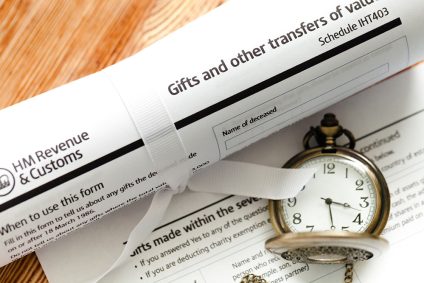Why orthopaedic surgeons must review their finances now
In a complex financial landscape, many senior orthopaedic surgeons are struggling to identify a clear pathway to retirement.
With the General Election fast approaching and imminent changes to tax relief and pension limits, it is vital you address your financial situation now. If you delay, you could miss out on financial opportunities or trigger harsh tax penalties.
Simon Bruce, managing director of specialist financial planners Cavendish Medical, highlights the top issues every senior consultant surgeon must consider:
Does the new NHS Pension Scheme 2015 apply to you?
Many consultants have been unduly worried after receiving letters from the NHS Pensions Agency regarding the new 2015 scheme. In fact, the changes will not apply to most senior doctors.
Doctors born after 1962 could be affected and will move to the new scheme for their future service only. Individuals born before this date will either be exempted altogether and remain members of the 1995 or 2008 pensions or will be subject to ‘tapering protection’. They will still join ‘2015 NHSPS’ but their joining date will be delayed, depending on how close to their normal pension age they were on 1 April 2012.
Are you using higher rate tax relief before it’s too late?
All of the main political parties are talking about cutting the 40% tax relief on pension contributions for higher earners. This could be reduced to 30 or even 20%. Should you be making increased contributions while you can? Be mindful of lifetime and annual allowance saving limits.
How can you make the most of the new pension freedoms?
You can now take as much as you want, when you want, from your private pension in the form of cash lump sums under new ‘pension freedoms’. As a consultant aged over 55, you and crucially, your spouse, will no longer need to buy an annuity to provide income until you die.
This is likely to be of greater benefit to the spouses of consultants where pension funding has been made from partnership earnings or limited company profits and where their rate of income tax is likely to be much lower in retirement than their higher earning partner.
Remember, many older style private pension contracts are unlikely to be ready for the new ‘pension freedoms’ so be sure to have these reviewed professionally.
The changes to the pension lifetime allowance (LTA) will apply to you
The total amount you can accumulate in pension funds free-of-tax is now £1.25m but will be cut to just £1m by 2016 following the Chancellor’s announcement in the Budget. Every senior doctor will be affected by this new limit because of the way the NHS pension works. The penalty tax rate can be 55% if the limit is breached. Have you checked where you stand?
Have you protected the value of your pension?
The taxation of pension benefits is a particularly complex area where more senior doctors are coming unstuck through poor advice.
Individual Protection 2014 has been introduced to restore a personal LTA to the value of pensions benefits on 5 April 2014 (if they exceeded £1.25m, up to a maximum of £1.5m at that time). It can be used even if you already hold Fixed or Enhanced Protection and there are no restrictions on the growth of future benefits.
There may also be a new protection scheme introduced following the recent changes to the LTA. Do you have the right protection in place?
Will you exceed the annual allowance?
The maximum amount of tax-relievable pension contributions you can make each year is £40K. There is a possibility this level will be cut further depending on the results of the Election.
Be wary of any NHS pay rises received through increments, new management positions, CEA awards or by any other means. Immediate tax charges of up to 50% can be avoided with careful planning.
Have you recently received an annual allowance letter from the NHS Pensions Agency and saved more than the previous annual allowance cap of £50K in 2013/2014? HMRC bases calculations for pensions’ contributions on the deemed growth of the pension in the year so the figures used bear little resemblance to the amount you have actually paid into your pot.
Check the sums carefully – many have been wrong due to the Pensions Agency allocating a back-dated award to the wrong tax year.


